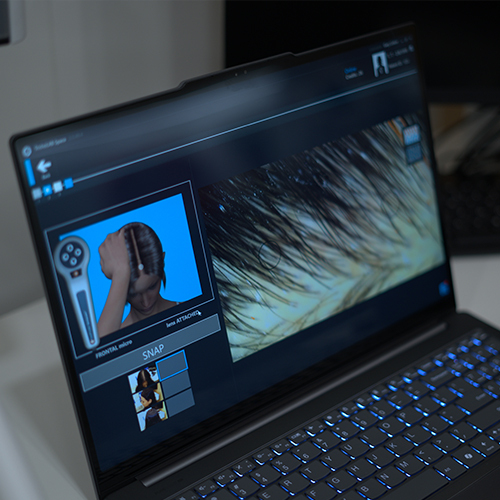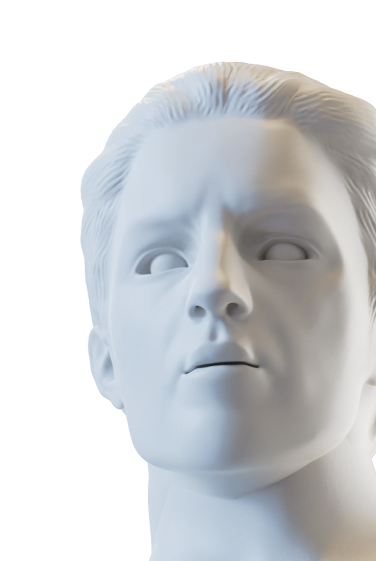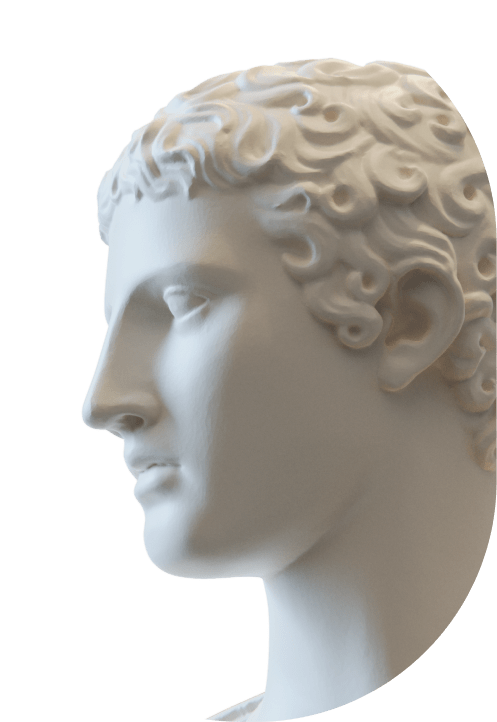Lichen Planopilaris Treatment NYC
Lichen planopilaris is a form of hair loss that leads to permanently damaged follicles that can’t regrow hair in those spots anymore. Your best chance of stopping additional hair loss when you have this condition is to begin lichen planopilaris scalp treatment as soon as it starts. And the only way you can know this is the cause of your hair loss is to visit the best doctor in Manhattan at Linkov Hair Surgery. You can get the right diagnosis early and begin the most appropriate treatment for lichen planopilaris at the best price. Don’t waste time and money on over-the-counter solutions that may not work. Call today for a consultation.

What Is Lichen Planopilaris?
Lichen planopilaris is a type of cicatricial alopecia, a condition in which the hair follicles are targeted and destroyed in an inflammatory process. This leads to scarring hair loss, which is permanent. This condition is a variant of a skin condition that causes irritation and swelling of mucous membranes. With lichen planopilaris, you usually lose hair in patches. You may feel burning, itching or pain on your scalp.
While not medically dangerous by itself, hair loss for any reason can be damaging to your self-confidence. For a conclusive diagnosis and the best lichen planopilaris treatment, as well as treatment of other types of hair loss, rely on Dr. Gary Linkov, a leading expert in the field of hair restoration at Linkov Hair Surgery in Manhattan.

What Causes Lichen Planopilaris?
The cause of lichen planopilaris is unclear. It appears that T-cells, which are part of your immune system, attack hair follicles for some reason, particularly the oil glands located in the stem cell region of the hair follicles. This may be related to:
- Genetics
- Environmental factors
Lichen planopilaris is a primary scarring alopecia, which means the hair follicles are directly targeted as part of an inflammatory process. The damage isn’t caused by an external injury such as a burn, and it’s not contagious. It occurs most often in women between the ages of 40 and 60 years old, but it can affect both men and women of any age.
What Is Lichen Planus?
Lichen planopilaris is a type of scarring alopecia that often accompanies a skin condition known as lichen planus. Possible causes of lichen planus include:
- Medications used to treat diabetes, high blood pressure or heart disease
- A hepatitis C infection
- Certain chemicals, pigments and metals
In autoimmune conditions, your body mistakenly attacks normal cells. In lichen planus, it attacks cells of the mucous membranes in your skin. In lichen planopilaris, the immune system targets hair follicles.

What Are the Symptoms of Lichen Planopilaris?
The symptoms of lichen planopilaris develop suddenly or become apparent over time. The symptoms you may experience include:
- Patchy hair loss
- Burning or itching in your scalp
- Scalp itchiness or redness
Even though this condition is considered a form of scarring alopecia, the area where the hair has been lost in patches may appear smooth, leaving no sign of inflammation. This happens because the inflammation occurs below the surface layer of skin.

Are There Different Types of Lichen Planopilaris?
Not everyone who has lichen planopilaris has exactly the same symptoms. There are three different types that include:
Classic lichen planopilaris In this type, scarring and inflammation of the hair follicles lead to hair loss, which is sometimes accompanied by a burning or itching sensation.
Lassueur-Graham-Little-Piccardi syndrome If you have this type of lichen planopilaris, you have bald patches and scarring on your head that may be accompanied by rough bumps around the hair follicles. Additionally, your armpit and groin hair become thinner.
Frontal fibrosing alopecia Your hair loss and scarring occurs at the hairline near your forehead. This form of lichen planopilaris may also affect your eyelashes and eyebrows.
Most forms of hair loss are considered non-scarring alopecia and can be triggered by many different things, including:
- Autoimmune conditions
- Stress
- A vitamin D deficiency
- A hormonal imbalance
Lichen planopilaris can look like many other hair loss conditions. While different types of hair loss can trigger similar symptoms, your NYC hair loss doctor has the expertise needed to differentiate between the ones that cause thinning hair, balding or scarring to determine that you have lichen planopilaris.
What’s the Best Treatment for Lichen Planopilaris?
The main goal of lichen planopilaris scalp treatment is to manage your symptoms and prevent further hair loss. The hair follicles that you’ve lost and have scarred over can’t regrow hair, but it you can slow your hair loss or stimulate growth in the remaining hair follicles. Usually, once the underlying cause of your condition is treated, normal hair growth continues unabated. While you still may need to undergo hair renewal process to provide overall scalp coverage, you may not lose any more hair. Possible treatment options include:
Corticosteroids This form of treatment can be administered as an injection, pill or a topical cream to help reduce irritation and inflammation.
Anti-malarial drugs Medications such as hydroxychloroquine are sometimes prescribed to treat inflammatory skin conditions. It may take up to six months to see improvement.
Antibiotics These medications are prescribed to fight bacterial infections.
Minoxidil This is an over-the-counter medication sold as liquid or foam that stimulates regrowth in your remaining hair follicles
Platelet-rich plasma therapy In this treatment, components of your own blood are used, which helps accelerate healing.
Low-level laser therapy The use of low-level laser energy is sometimes effective in treating skin inflammation and hair loss.
Hair replacement systems Wigs and hairpieces are non-invasive options that reduce your self-consciousness from hair loss.
The most effective treatment for lichen planopilaris depends on the severity of your symptoms and the extent of your hair loss. Your doctor may recommend a combination of treatment methods. For best results, start treatment as early after your symptoms start as possible. If you have lichen planopilaris, avoid chemical hair treatments or products, such as coloring or perming, that cause or worsen itching or burning.
How Do I Know if I Have Lichen Planopilaris?
By doing a thorough medical history, physical exam and scalp biopsy, your NYC doctor can determine whether you have lichen planopilaris or another condition that leads to similar symptoms, such as:
Obtain an accurate diagnosis before you get started with lichen planopilaris scalp treatment to prevent or slow permanent hair loss. Your top NYC doctor may also discover that you have more than one type of hair loss, which may call for different types of treatment. Many treatments work well in combination with others. Contact Linkov Hair Surgery today in Manhattan for a consultation and the best lichen planopilaris treatment at the best price.
Linkov Hair Surgery
150 E 56th St, #1A
New York, NY 10022
(212) 970-9404

